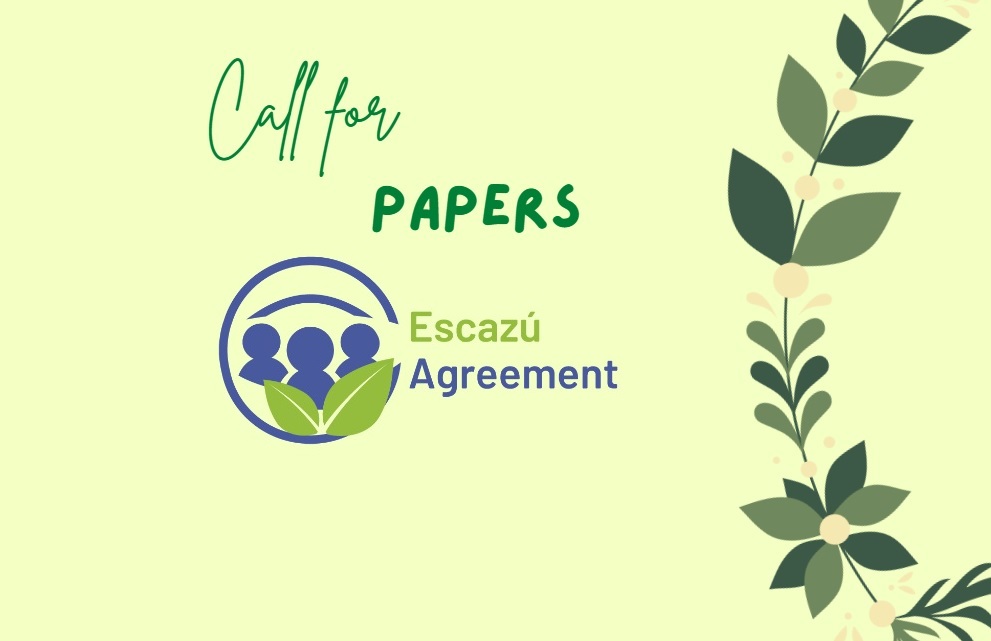Call for papers on the occasion of the Third Conference of the Parties to the Escazú Agreement
Work area(s)
Topic(s)

The Secretariat of the Escazú Agreement is seeking unpublished articles on access to justice and human rights defenders in environmental matters in Latin America and the Caribbean on the occasion of the Third Conference of the Parties (COP-3) to the Escazú Agreement, which will be held in Santiago, Chile from 22-24 April 2024.
The selected articles will be compiled in an ECLAC publication. Authors may be invited to participate in related activities convened by the Secretariat.
The process will consist of two phases. In the first phase, those interested must send a concept note of their proposed article. The Secretariat, with the support of an Evaluation Committee, will make a selection of concept notes and invite the authors to participate in face-to-face sessions at ECLAC, Santiago, after the closure of the Third Conference of the Parties on 25 and 26 April 2024, to showcase the proposed articles. In a second phase, authors will be asked to send their final complete articles. Selected articles will be compiled in an ECLAC publication.
Those interested must send a concept note of a maximum of 3 pages in Word format, in Spanish or English, by email to secretaria.escazu@cepal.org by Thursday, 29 February 2024 (11:59 p.m. Santiago, Chile) containing the information indicated in the call.
Articles may deal with any of the topics and subtopics indicated below:
1. Human rights defenders in environmental matters
a) Experiences and good practices in the establishment of a safe and enabling environment, the recognition and promotion of human rights for the defense of the environment.
b) Experiences and good practices in individual or collective protection mechanisms.
c) Analyses of regulatory frameworks related to defenders in environmental matters.
d) Analyses of jurisprudence related to defenders in environmental matters.
e) Analyses of emerging challenges and solutions, such as new types of threats and risks, smear campaigns, strategic lawsuits against public participation (SLAPPs), the use of new technologies, among others.
2. Access to justice in environmental matters
a) Experiences and good practices in reducing or eliminating barriers to access to justice in environmental matters, such as broad legal standing, affordability and reasonableness of costs, measures to facilitate the production of evidence, provision of and access to specialized knowledge, mechanisms for execution and compliance with decisions and rulings, among others.
b) Experiences and good practices in supporting persons and groups in vulnerable situations, such as affirmative measures, differentiated approaches, gender, intergenerational and cultural awareness and technical or legal support, among others.
c) Experiences and good practices in the generation and strengthening of environmental institutions for access to justice (administrative, judicial and other independent State bodies).
d) Analyses of regulatory frameworks related to access to justice in environmental matters.
e) Analyses of jurisprudence related to access to justice in environmental matters, including the guarantee of access to environmental information, public participation in environmental decision-making processes, adverse effects on the environment or contravention of environmental regulations.
Country(ies)
- Latin America and the Caribbean